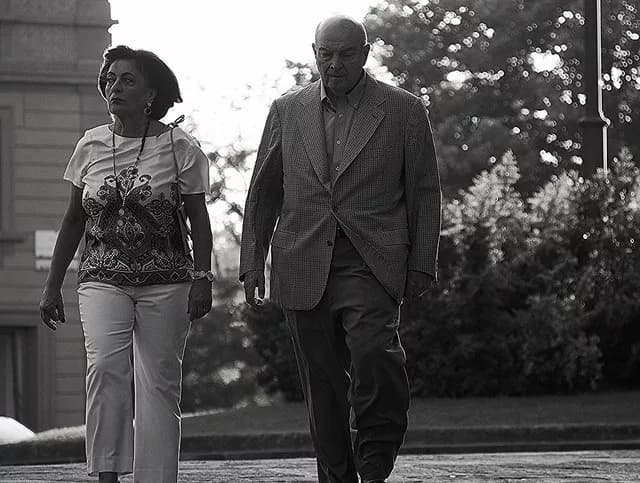
Walking Faster Or Longer Linked To Significant Cardiovascular Benefits In Older Adults
In a large prospective community-based study of older Americans, modest physical activity was associated with a lower risk of cardiovascular disease (CVD). This was true even among men and women older than age 75 at baseline -- a rapidly growing population for whom regular activity has been advised, but with little supportive empirical evidence.
Led by senior author, Dariush Mozaffarian, M.D., Dr.P.H., dean of the Friedman School of Nutrition Science and Policy at Tufts University, the researchers studied a group of American adults whose mean age was 73 at the start of the study and who were then followed for 10 years. Information on various usual activities was assessed at baseline and regularly updated during follow-up. When the current study's research team evaluated different aspects of physical activity by the men and women during this ten-year period -- a greater pace, walking distance, and leisure activity-- each was associated with a lower risk of cardiovascular disease. The associations found include:
- After adjustment for other risk factors and lifestyle behaviors, those who were more active had significantly lower risk of future heart attacks and stroke.
- Adults who walked at a pace faster than three miles per hour (mph) had a 50%, 53%, 50% lower risk of coronary heart disease (CHD), stroke and total CVD, respectively, compared to those who walked at a pace of less than two mph.
- Those who walked an average of seven blocks per day or more had a 36%, 54% and 47% lower risk of CHD, stroke and total CVD, respectively, compared to those who walked up to five blocks per week.
- Those who engaged in leisure activities such as lawn-mowing, raking, gardening, swimming, biking and hiking, also had a lower risk of CHD, stroke and total CVD, compared to those who did not engage in leisure-time activities.
- The findings were similar in both men and women, in those above or below age 75 at baseline, and including only those with similarly good or excellent self-reported health.
The researchers studied 4,207 men and women who had been enrolled in the Cardiovascular Health Study (CHS). CHS is a National Heart, Lung, and Blood Institute of the National Institutes of Health-supported national cohort of U.S. men and women who were enrolled in 1989-90 from Medicare eligibility lists and whose health was followed over time. The researchers used the information in the CHS database concerning physical activity, including walking, leisure-time activities and exercise intensity, and other health information coming from annual study visits such as physical exams, diagnostic testing, laboratory evaluations, personal health histories, and measured risk factors.
"Our study of older Americans shows that, even late in life, moderate physical activity such as walking is linked to lower incidence of cardiovascular disease," commented the first author Luisa Soares-Miranda, Ph.D., a member of the research team and currently a postdoctoral student with the Research Centre in Physical Activity, Health and Leisure, Faculty of Sport at the University of Porto, Portugal. "It appears that whether one increases the total distance or the pace of walking, CVD risk is lowered. Fortunately, walking is an activity that many older adults can enjoy."
"While national guidelines recommend that older adults engage in regular physical activity, surprisingly few studies have evaluated potential cardiovascular benefits after age 75, a rapidly growing age group," said Mozaffarian. "Our findings confirm a beneficial relationship between walking and leisure activities and CVD late in life. These results are especially relevant because, with advancing age, the ability to perform vigorous types of activity often decreases. Our findings support the importance of continuing light to moderate exercise to improve health across the lifespan."
The above post is a redistributed news release provided by Tufts University, Health Sciences Campus. Note: Materials may be edited for content and length.
Disclaimer: DoveMed is not responsible for the adapted accuracy of news releases posted to DoveMed by contributing universities and institutions.
Primary Resource:
Soares-Miranda, L., Siscovick, D. S., Psaty, B. M., Longstreth, W. T., & Mozaffarian, D. (2015). Physical Activity and Risk of Coronary Heart Disease and Stroke in Older Adults: The Cardiovascular Health Study. Circulation, CIRCULATIONAHA-115.
Related Articles
Test Your Knowledge
Asked by users
Related Centers
Related Specialties
Related Physicians
Related Procedures
Related Resources
Join DoveHubs
and connect with fellow professionals

0 Comments
Please log in to post a comment.